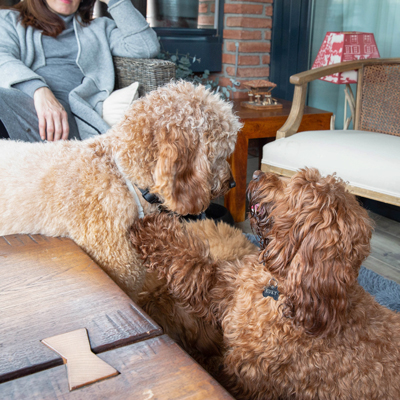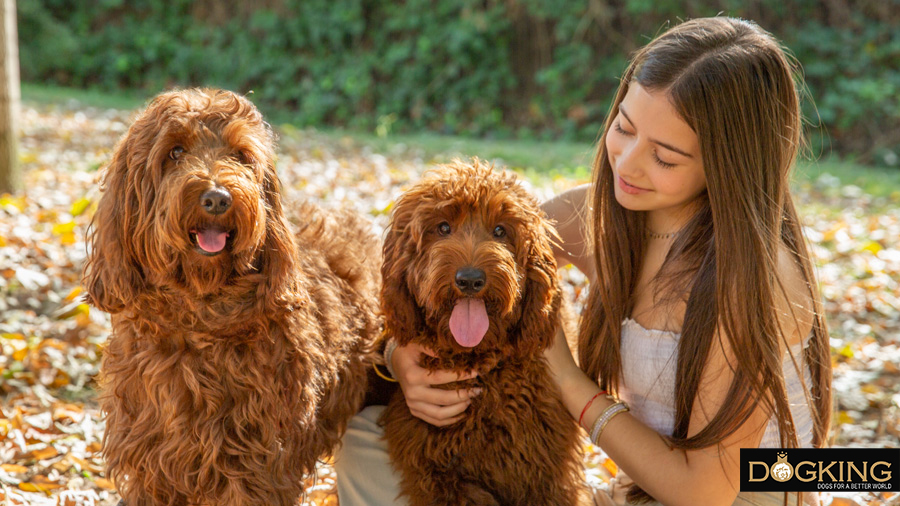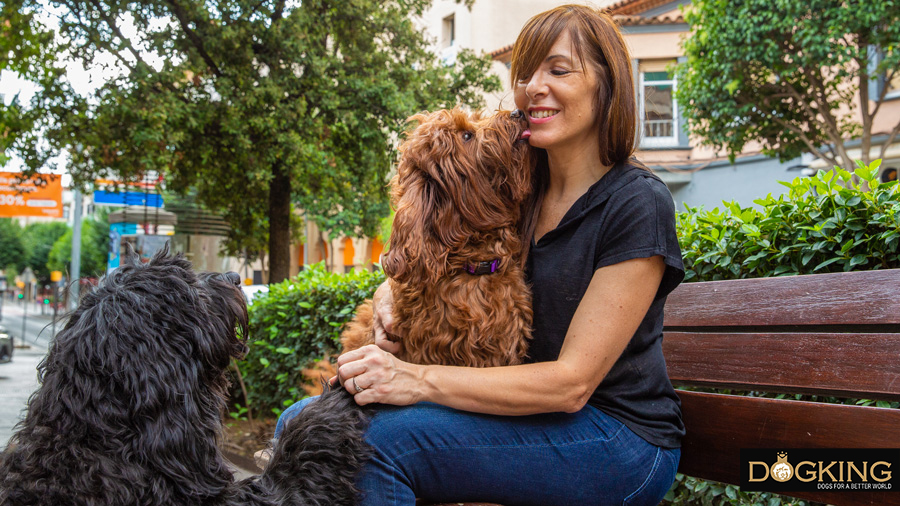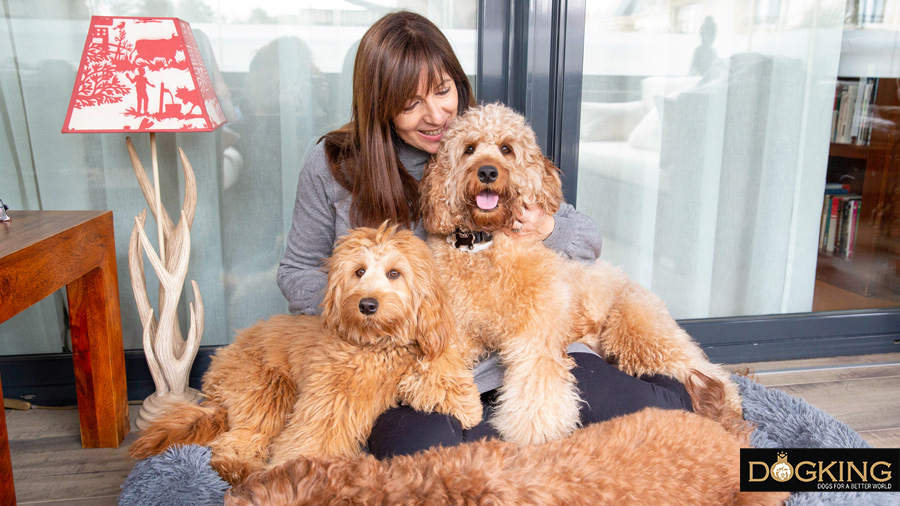May dogs be jealous?
Find out if your dog may suffer from jealousy and why

THE REASON AND PREVENTION OF CANINE JEALOUSY
Reading time about: 10 minutes
Dogs and humans share many more feelings than we think, and jealousy is no exception. But in order to prevent this from becoming a problematic behaviour, it is necessary to know what kind of jealousy we may encounter, how it can manifest itself, and how it could be avoided or ultimately deal with?

Table of contents
1- Jealousy in dogs and its types
3- Signs that your dog is jealous
4- Reasons and tips to avoid canine jealousy
Jealousy in dogs and its types
Dogs have their own conception of what they bring to their pack. For our dog, its social circle will consist of all those who live with it. But at the moment another person or animal becomes part of the group again, the hierarchical level and the role that our pet adopts may be threatened. This threat is what arises jealousy of attention in it, which tends to occur more frequently and it should be differentiated from sexual jealousy.
Sexual jealousy arises instinctively when a dog male, in his possessive thoughts towards a female, sees that another male can impose his genetics. Unlike jealousy of attention, sexual jealousy doesn’t arise as a consequence of socialization but it is the result of the reproductive instinct of every dog. This type of jealousy may also lead to an aggressive response and affect the coexistence or relationships that our dog may establish. That is why in certain cases it is recommended that males be neutered or females be spayed.
What do the experts think?
The question of canine jealousy is something that several scientists have tried to decipher throughout history. While some, like Darwin, believed that it was a naturally acquired expression to protect the bond between individuals, other experts argue that this feeling is a consequence of the socialising and cultural process of all emotional people. A dilemma about which, thanks to psychologist Christine Harris and her leadership in a study at the University of California (San Diego), we may have a clue.
Harris' study verified that dogs are indeed a jealous species. The research included the participation of 38 dogs of different breeds, considering different scenarios where the dogs were ignored by their owners in favour of 3 objects: a stuffed dog, a torch, or a book. In this way, people behaved towards these things in the same way as they did with their pets, through caresses or affectionate words.
The results spoke for themselves, showing that 78% of the dogs showed signs of jealousy when being replaced by a stuffed animal, 42% with a similar behaviour in the case of the torch, and 25% with the book. In fact, one of the signs of dogs' jealousy was that they tried to attract the attention of their owners by breaking the supposed bond or interaction established with the object in question.
In short, it was possible to observe how the vast majority of dogs tend to show their jealousy by aggressive behaviour through barking or growling. Combative from the outside, but defensive from the animal's point of view by reclaiming the role that until now it had internalized and believed it should adopt.

Signs that your dog is jealous
The following are the most common behaviours that may reveal jealousy in your dog, especially if it doesn’t usually occur on a regular basis:
-
Indoor urination: In order to attract the attention and to reinforce its urinary marking in all places.
-
Possessive behaviour: Wanting to accompany the subject whose attention is required at all times, whether person or animal, asking for frequent signs of affection.
-
Misbehaviour: The main reason is a lack of attention, some dogs may destroy objects, cry, refuse to eat or ask for extra food, ignore signals or hide to encourage people to go looking for them.
-
Aggressiveness: In some breeds they may show aggression either by growling or baring their teeth, or even biting, or attacking anyone they may consider a rival. Aggressiveness may appear in different manifestations and will be a reason enough to see a professional.
The triggers of jealousy in dogs
The most common situation that tends to trigger canine jealousy is usually when more attention is paid to one dog than to another. In the case of a newcomer to the same house, we are talking about territoriality rather than jealousy, because until the new tenant is seen as a member of the family, it is likely to be perceived as an "intruder" rather than a "rival".
For example, another trigger could be less attention to a dog during a woman's pregnancy, living with a child or baby in a family, or jealousy towards the owner's own wife when the dog appreciates affection between them.
Reasons and tips to avoid canine jealousy
Jealousy, as in any other species, can lead to a change in your dog's usual behaviour. This is especially important if the reason is a baby, you should try to avoid this situation by preparing your dog with new routines and smells, before the baby's birth.
In the event that you see that you need help, the best way to act is to leave sudden changes in behaviour in the hands of a professional, either an ethologist to ask for advice or a trainer to re-educate your pet. To prevent this from having to be done, it is best that, during the socialization process, jealousy control and the normalization of contact between the owner and other people or animals become essential. It is true that the learning process is easier in breeds such as the Australian Cobberdog. As they are dogs with whom working on empathy and understanding of others is so easy, giving their desire to please people, they make living together with other dogs or family members not a source of jealousy but a source of support.
